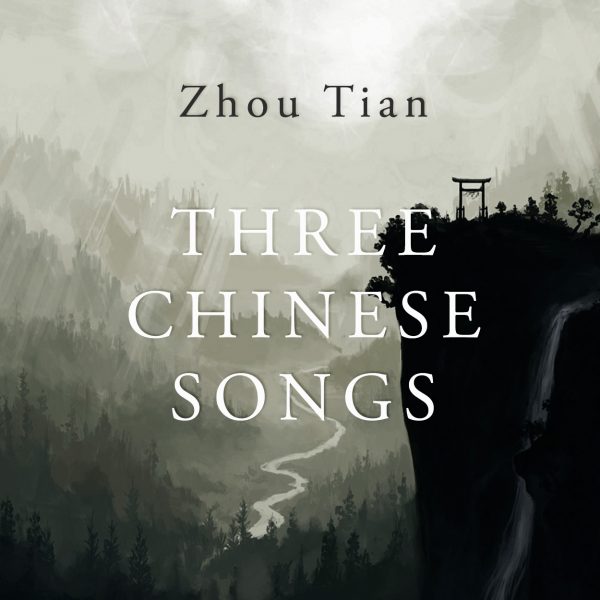
Three Chinese Songs
(2002) | 10 minutes
Commissioned by The Curtis Institute of Music
Poems by Xu Zhimo
SCORING soprano, piano
PREMIERE 29 January 2003 at the Field Concert Hall at the Curtis Institute of Music, Philadelphia, PA, by Rachael Garcia, soprano, and Zhou Tian, piano
Listen
Wind
Yellow Bird
Transience
Rachael Garcia, soprano; Zhou Tian piano. Live at the Curtis Institute of Music. ©All Rights Reserved.
Programme Note
Commissioned by the Curtis Institute of Music, Three Chinese Songs touch on the ephemeral – of wind, wisp of cloud and the color of a bird. Sung in Chinese, Wind is a wordless vocalise rising and falling, accompanied relentlessly by “bell-like” piano chords. Yellow Bird is a lively and raucous flash of color, while Transience is sung a cappella in the first part of sorrow, with lightly flowing runs for the second part of recollection of past happiness.
©Zhou Tian
Text
I. Wind
《風》
(vocalise)
II. Yellow Bird
Text by Zhimo Xu (selection)
《黃鸝》 (節選)【徐志摩】
一掠顏色飛上了樹。
「看,一只黃鸝!」有人說。
翹著尾尖,它不作聲,
艷異照亮了濃密──
像是春光,火焰,像是熱情。
A spectrum of color springs into a tree,
“Look, a yellow bird!” someone exclaims.
Proudly raising its tail, silent,
Its foreign beauty illuminates the foliage—
As a ray of spring, a blaze, as passion.
III. Transience
Text by Zhimo Xu
《偶然》【徐志摩】
我是天空裡的一片雲,
偶爾投影在你的波心──
你不必訝異,
更無須歡喜──
在轉瞬間消滅了蹤影.
你我相逢在黑夜的海上,
你有你的,我有我的,方向;
你記得也好,
最好你忘掉,
在這交會時互放的光亮!
I am a wisp of cloud in the sky,
By chance, casting a shadow upon your heart—
Don’t be startled,
Even less so, hopeful—
For it will move on in an instant.
On this dark night, you and I met on the sea,
You with your, I with my own, direction;
While you may remember,
It’s better to forget,
The luminous moment we shared!
Translated by Meng-Chieh Liu and Zhou Tian
Reviews
“The highlight of this concert was ‘Three Songs‘ by Zhou Tian. ‘Wind,’ a vocalise accompanied by chords is almost too staccato to be wind, but the singer’s vocal production becomes airy at the end. The color of joy is represented by the liveliness of the antic ‘Yellow Bird‘ and is freely sung with relaxed passion and a light tone. The ‘Transience‘ of a moment is presented simply, a Capella in the first section, and then with lightly flowing accompaniment. This set, sung in Chinese and accompanied by the composer, was the most relaxed and confident on the program, presented without being over-sung, with text and music most commensurate.”
—Sequenza21